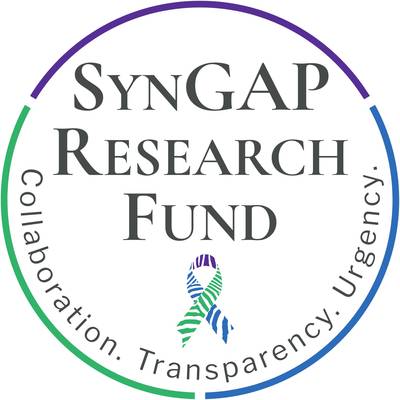SynGAP Research Fund Announces #SRFCoba Grant to Dr. Marcelo Coba of the University of Southern California
NEW YORK, June 8, 2021 /PRNewswire/ -- The SynGAP Research Fund (SRF) announces a new research grant award to the Coba Laboratory in the Zilkha Neurogenetic Institute at the University of Southern California. The lab will receive $130,000 over two years towards funding a postdoctoral fellow focused on SYNGAP1 human cellular models.
SYNGAP1 non-syndromic intellectual disability (NSID), also known as SYNGAP1 encephalopathy, is a rare genetic disorder caused by a variation on the SYNGAP1 gene. It leads to several neurological complications, including mild-to-severe intellectual disability, epilepsy, autism, sleep disorder, hypotonia (low muscle tone), apraxia (delayed/no speech), impulsivity and aggression. There are only 762 diagnosed patients identified globally according to the #SyngapCensus, despite a predicted incidence of 6.1 per 100,000.
Dr. Coba seeks to develop a first of its kind systems-level understanding of a human neurodevelopmental disorder by characterizing and profiling the function of patient-derived cells and corresponding controls at multiple resolutions. The study will generate SYNGAP1 cell lines and analyze various functions at both the single cell and network levels. The goal is to uncover targets that can restore function and result in a treatment for the largest cross-section of SYNGAP1 patients.
"Very little is known about the role of SYNGAP1 during neuronal development and the impact of SYNGAP1 mutations in classes of human neurons. This SRF award will allow us to start to address the role of SYNGAP1 in different types of human neurons and determine how mutations in SYNGAP1 impair human neuronal function with a cell-specific resolution. We expect that our results will inform on novel targets and treatment strategies for patients affected by mutations in SYNGAP1. We are indebted to SRF and the families of SYNGAP1 patients that make this study possible," says Dr. Coba.
This is the second time Coba Lab has received support from SRF, which also donated $46,250 to Coba and stem cell researcher Giorgia Quadrato in 2020. The grant was used to fund a multi electrode array for the analysis of brain organoids. Dr. Coba has also joined the Scientific Advisory Board of SRF.
Michael Graglia, Managing Director of SRF says, "This work is a key part of the SRF Clinical Trial Readiness Program. In combination with the SYNGAP1 Digital Natural History Study with ciitizen, our iPSC program, the EEG biomarker & epigenetics work, this project further derisks SYNGAP1 as a target gene for companies developing genetic therapies. Our community is lucky to have Dr. Coba working on SynGAP patient derived cell lines and organoids."
The grant was made possible by a fund-raising effort supported by dozens of families. Read more about the grant in this recent Keck School of Medicine of USC article.
ABOUT SYNGAP RESEARCH FUND
SRF, incorporated in 2018, is a 501(c)(3) public charity. Entirely patient-led, there are 14 families represented on the Board of Directors. Their mission is to improve the quality of life of SYNGAP1 patients through the research and development of treatments, therapies and support systems. Completely parent-led, SRF is the largest non-government funder of SynGAP research with over $1.4M in grants. The founders cover all operational costs, allowing 100% of donations to go to research. SRF keeps the community up to date via monthly newsletters, a weekly SYNGAP1 Podcast & a robust website. SRF is a member of the American Brain Coalition, COMBINEDbrain, Global Genes Foundation Alliance, Personalized Medicine Coalition and the SynGAP Global Network. For more information, visit SyngapResearchFund.org.
Contact:
Peter Halliburton, SRF Development Director
peter@syngapresearchfund.org
![]() View original content to download multimedia:http://www.prnewswire.com/news-releases/syngap-research-fund-announces-srfcoba-grant-to-dr-marcelo-coba-of-the-university-of-southern-california-301307329.html
View original content to download multimedia:http://www.prnewswire.com/news-releases/syngap-research-fund-announces-srfcoba-grant-to-dr-marcelo-coba-of-the-university-of-southern-california-301307329.html
SOURCE SynGAP Research Fund

